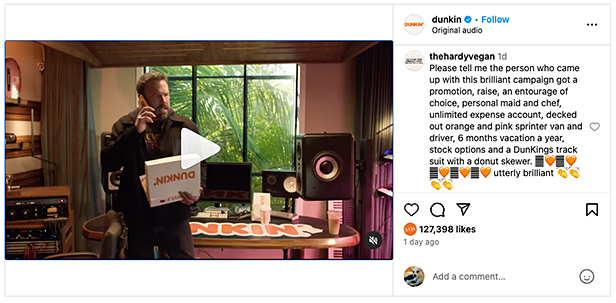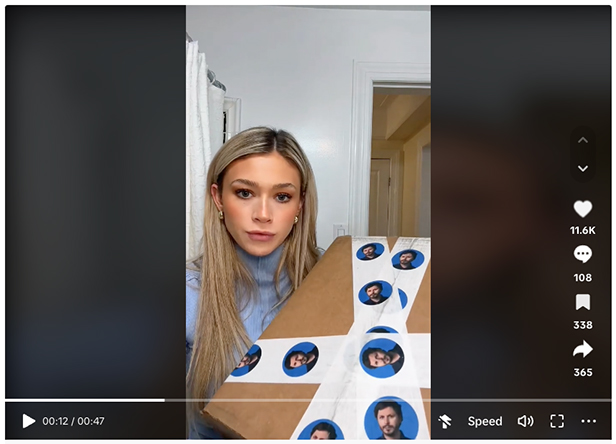February 16, 2024
Promo Power: ‘DunKings’ Merch Sells Out in Less Than 20 Minutes
A successful Superbowl commercial starring Ben Affleck teased a new menu – and epic merch – for quick-service food chain Dunkin’. There’s a bigger trend in branding in play too – one promo can capitalize on.
Anything is possible when you run on Dunkin’, the saying goes – like becoming a pop star or selling out a branded-merch collection in less than 20 minutes.
The “DunKings” Superbowl LVIII commercial starring Ben Affleck, Matt Damon, Tom Brady and Jennifer Lopez has taken pop culture by storm, receiving a five-star rating from AdAge. The commercial also served as a platform for teasing the drop of new, wildly popular merch amid what was reportedly the most-watched televised event since the 1969 moon landing.
The DunKings swag collection consists of a branded tracksuit, bucket hat and tumblers. While it may be difficult to picture the average person wearing the motley bright pink and orange getups as part of their daily garb, that did not stop the line from selling out in minutes.
Fear not, though. Dunkin’ is stepping up to meet the continued rampant demand. The quick-service doughnut and coffee chain announced on Instagram that it will be restocking the merch – an announcement that received a huge “thank you” online from fans. Want to get your hands on the items? You can preorder now on the Dunkin’ website … but you’d better hurry, as TikTok users are predicting that resellers will offer the items for hundreds of dollars.
The hit commercial and related merch are helping promote new offerings from Dunkin’. In stores nationwide, the DunKings menu features Affleck’s go-to coffee order, which is iced coffee with vanilla cream, sweet cold foam and cinnamon sugar. It also includes the Munchkins Skewer, Everything Encore Breakfast Sandwich, Hazelnut Heartthrob Iced Coffee and Mixed Berry Beats Dunkin Refresher.
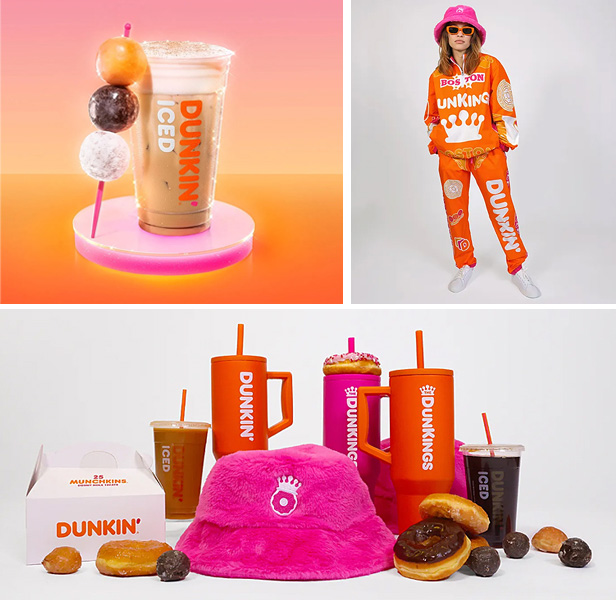
The commercial itself is part of a series following Boston native Affleck, who is reportedly an avid consumer of Massachusetts-headquartered Dunkin’ himself, through adventures in what has been dubbed the “Ben Affleck Dunkin Cinematic Universe (BADCU)”.
The journey began in a commercial broadcast during last year’s Superbowl: Affleck was shown working the drive-through at a Boston Dunkin’, where he received a surprise visit from his wife, JLo. “What are you doing here?” she asked. “Is this what you mean when you say you’re going to work all day?”
Following that commercial, Dunkin reportedly experienced the most doughnut purchases in the company’s history.
This year, Affleck, now done with his drive-through endeavors, had the aspirations of becoming a pop star. In a two-part saga starting with “The Popstar”, which was released a week before the Superbowl, Affleck enlists the help of social media personality Charli D’Amelio to actualize true pop stardom. “Who is TikTok?” he asks D’Amelio.
The commercial plays on the “Sad Affleck” memes that originated during last year’s Grammy’s, where social media decided that Affleck looked bored during the celebrity-studded award show. To prove that he’s not bored (and not having a mid-life crisis), Affleck decides he too can do what JLo does, and that he has now found his purpose.
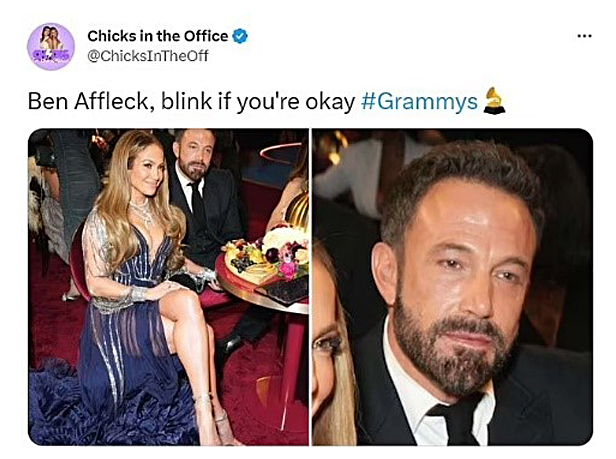
In “The DunKings,” Affleck enlists the help of fellow Bostonian Damon and legendary New England Patriots quarterback Brady to form a boy band. They perform for JLo – fully adorned in “DunKing” track suits and sunglasses – in hopes of being included on her album.
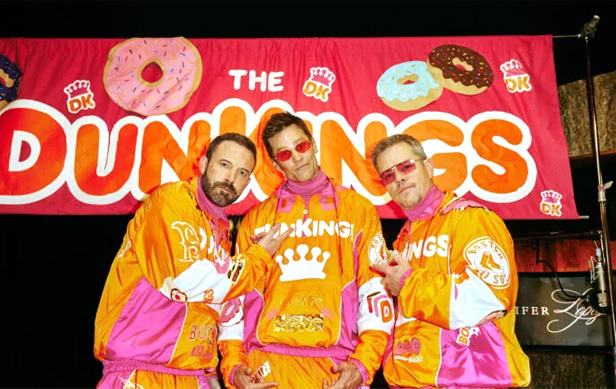
Maybe the DunKings were unsuccessful in getting on the album in the fictional narrative. But in terms of successful marketing in the real world, the DunKings commercial-and-merch combo is a strong example of how brands are increasingly partnering with influencers and celebrities to create a multi-layered “world,” transcending television and permeating other facets of daily life, like social media and celebrity culture.
Other brands similarly followed a narrative format in commercials released in segments, encouraging fans’ excitement to build over the continuation of a beloved figure’s endeavors.
For instance, CeraVe’s Michael Cera campaign took an “influencer-first” approach in generating speculation around Cera's connection to the brand, working with about 60 influencers to do so, according to Charlotte Tansil, president of Ogilvy public relations, social and influence.
The influencers were sent PR boxes with CeraVe products inside, wrapped in tape featuring Cera’s face, like in this TikTok video.
The purpose was to get people to talk about the brand long before the Superbowl, following the narrative “from the beginning, middle and end over time, as opposed to it all needing to happen within the commercial itself,” said Tansil.
This “immersive storytelling experience” allowed influencers to do the speaking for the brand, instead of the brand itself, said Adam Kornblum, senior vice president and global head of digital marketing for CeraVe.
There was also Miller Light’s “Running of the Beer Ads” campaign. Instead of the brand paying for a $7 million Super Bowl slot, 1,000 customers received a Miller Lite Jersey with a giant QR code on the front. Encouraged to go on a “beer run” the day before the Superbowl, onlookers could scan the code for a chance at winning $17,000. The top five runners receive free beer for an entire year.
These Superbowl commercials show that out-of-the-box, immersive brand storytelling is here to stay. It’s a compelling way for companies to permeate multiple platforms and leave a lasting impact with consumers. And certainly, it’s an opportunity for promo distributors eager to support such efforts

